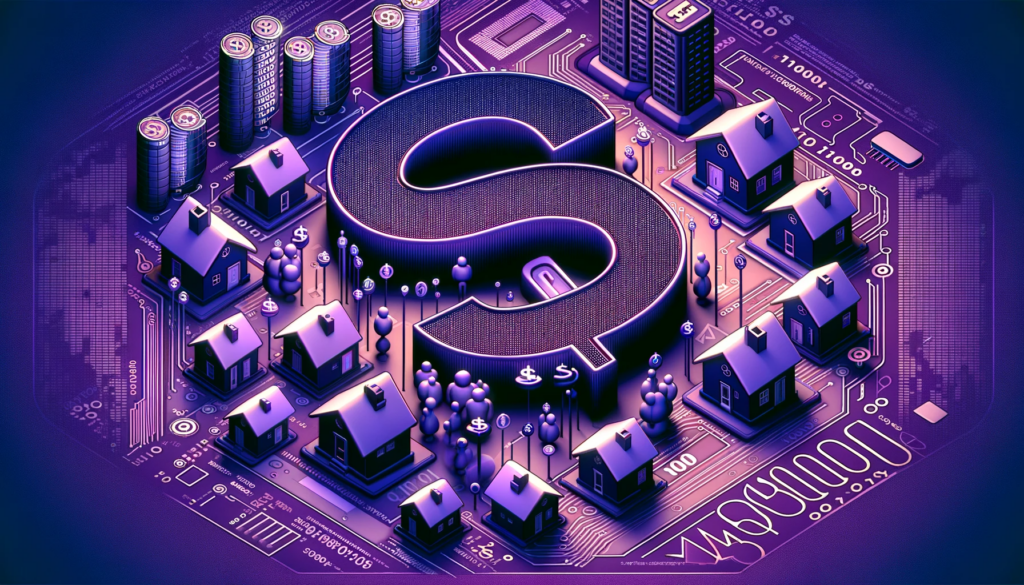Former U.S. President Donald Trump has drawn a line in the sand when it comes to the potential creation of a U.S. central bank digital currency (CBDC). At a rally in New Hampshire, Trump not only promised to block the digital dollar’s inception but also went as far as to label it a ‘dangerous threat to freedom.’
This stance has stirred a complex debate among financial analysts, policymakers, and members of the crypto community. Those advocating for the digital dollar cite efficiency and modernization, while critics, especially Trump, caution against the supposed loss of privacy and autonomy it could bring to American citizens.
Understanding the Digital Dollar and its Potential Impact
A Central Bank Digital Currency (CBDC) is a form of digital or virtual currency that represents a sovereign currency and is issued by the central bank. The concept of a digital dollar is not new, but the spotlight has recently grown brighter as discussions about its rollout gain momentum.
The proposed digital dollar would exist alongside traditional currencies and could serve as a parallel means of exchange. Advocates argue that it would offer benefits such as increased financial inclusion, reduced transaction costs, and faster payment systems.
However, as with any significant financial innovation, there are risks. Trump’s concerns tap into the potential for government overreach and a loss of privacy that a CBDC’s digital, traceable nature might incur. Critics also worry about the implications for personal autonomy — will citizens still own their money and be able to use it without fear of censorship or surveillance?
Trump’s Criticisms and Their Foundation
President Trump’s vocal criticism of the digital dollar reflects broader concerns about government control over financial systems. He fears that a digital currency could grant the government unprecedented power over personal finances, enabling surveillance and potentially arbitrary limits on how and where individuals can use their funds.
His warnings of ‘absolute control over your money’ strike a chord with many who value financial freedom. In his eyes, a digital dollar could potentially be used to infringe upon the rights and privacy of Americans, supporting a narrative of economic liberty under threat.
Impact on Financial Markets and Investor Sentiments
Trump’s stance has raised questions about the potential impact of his promise on the financial markets. The suggestion that a digital dollar could lead to ‘the government taking your money and you wouldn’t even know that it’s gone’ would undoubtedly spook investors and potentially affect consumer confidence.
The crypto industry has been picking up unprecedented steam, and any resistance from high-profile figures could cause temporary turbulence. However, it’s also possible that such opposition could galvanize crypto enthusiasts and potentially lead to an even more fervent embrace of decentralized currencies.
On a broader scale, Trump’s promise could lead to market volatility, particularly if it reignites the debate over the balance between financial innovation and individual rights.
Policy Implications and Regulatory Changes
Trump’s promise to block the digital dollar must be viewed within the broader context of regulatory and policy changes that are already underway in the financial and technological sectors.
It’s important to consider that a digital dollar would necessitate significant regulatory frameworks to operate effectively and safely. The concern about regulating and controlling decentralized cryptocurrencies could lead to a wider crackdown on the crypto industry that has thus far been relatively free from government control.
The promise to block the digital dollar could also impact other countries’ initiatives in the space, creating geopolitical implications. If the U.S. takes a hardline stance, it could influence or even dissuade other nations from pursuing their own CBDC projects.
The Response from the Crypto Community
Unsurprisingly, Trump’s comments have sparked a range of reactions from the crypto community and financial experts. Some have applauded his stance as a defense of financial freedom, while others view it as a misguided attempt to halt technological progress.
Regardless of individual opinions, the discourse surrounding the digital dollar has reached a fever pitch, and Trump’s promise serves as another flashpoint in the ongoing conversation about how to navigate the intersection of digital currencies and fiat money.






